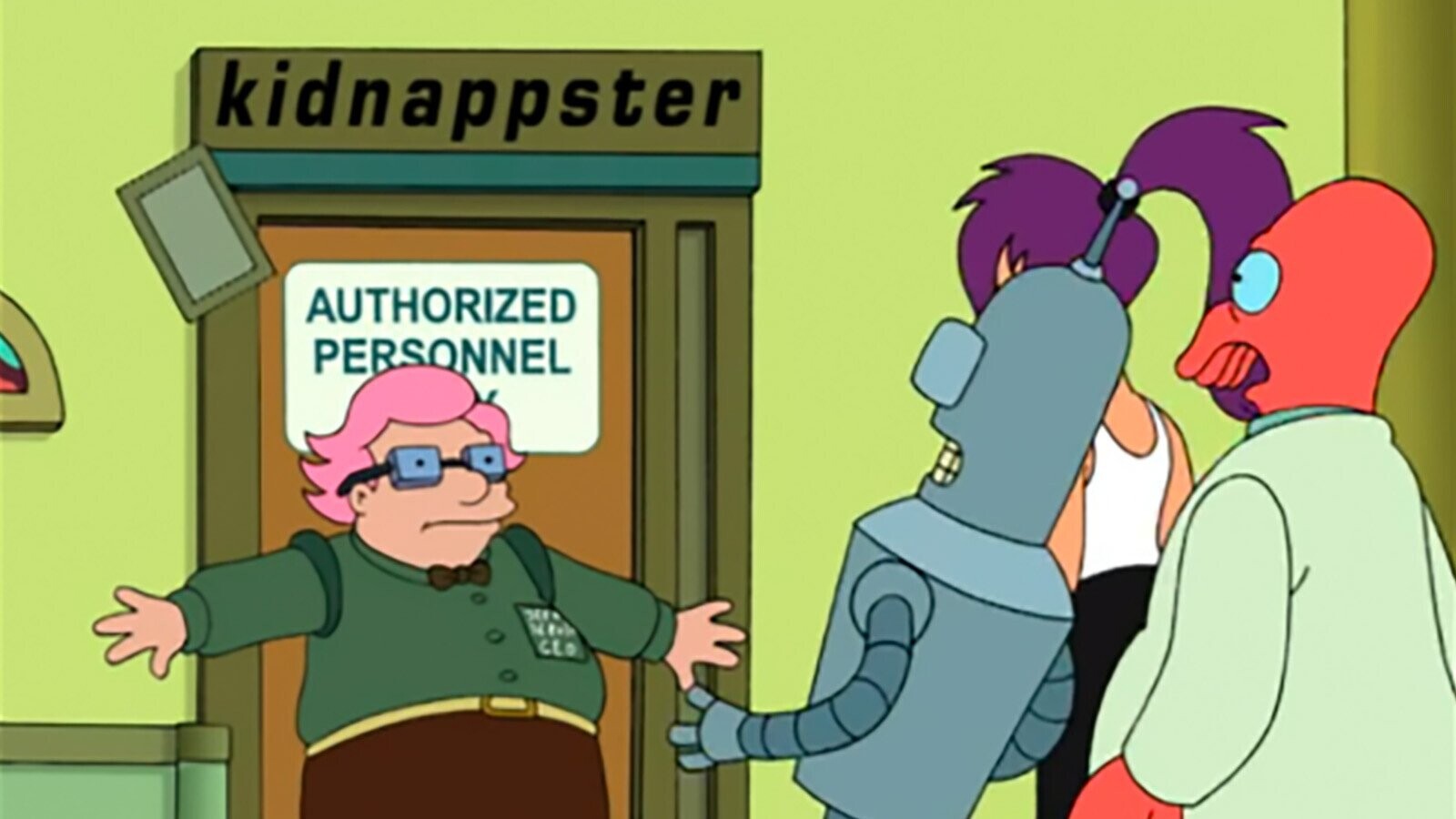The page you're on takes about 5 minutes to read.

We guessed his name referred to “a sleep disorder.” I remember that distinctly - people at my school discussed it, and speculated about what that sleep disorder might be. Later articles claimed that it really referred to his (self-proclaimed) “nappy” hair that he shaved.
Perhaps Shawn Fanning doesn’t have a sleep disorder. That could’ve been an urban legend. Either way, his online name was Napster. He created a program of the same name, Napster, for sharing audio files between computers in the late 1990s.
Napster would revolutionize sharing music online. Don’t get me wrong. It was possible to share music online before. I did it. Other sites mention how difficult it was to download small clips, but I myself tended (pre-Napster) to stick to longer, lyricless .midi files. By 1998, I believe I had a pretty large library of those on my home computer.
Word quickly spread about this strange new program Napster, though. You could easily find and download whole songs in MP3 format, finally! And within a reasonable timeframe, too. True, it was nowhere near streaming speeds, but it felt robust, even on my dial-up connection. 10+ minutes for one song was so worth it.
At the time, how it all worked technically was very fuzzy to me, and still is! But it did work, and that was the important thing. You connected to a Napster server, and searched for songs in other peoples’ Napster folders. Finding them, you’d start to download, hoping they wouldn’t end the connection.
There were third party tools like Napigator that allowed you to navigate between servers themselves, switching up your choices. Some implemented a chat with other users on your server. That was a really cool feature. Everyone else could’ve been lying, but most users I encountered were in college or younger The majority of discussions revolved around music itself and sharing files.
Some people would carry around less-legitimate third party applications that did nefarious things to other users, and we’d have to watch out for these weak would-be hackers of sorts, who could punt you offline and things like that. I don’t remember what all those things did because I only heard about them second-hand, never downloading one myself. I expected I’d have gotten banned somehow if I did. Clearly there was a way they got caught, right?
The first song I downloaded was Kryptonite by 3 Doors Down. I can’t remember how or why it popped up, but it downloaded, and very quickly, too. I then downloaded a vast library, including Astro Lounge, more 3 Doors Down, lots of Pure Moods, and just random stuff I’d stumble across in various folders.
I was late to the party when it came to listening away from the computer, though. Burning CDs, you’ll likely recall, wasn’t merely a matter of having a CD-ROM drive, but having a specific writeable one. Once I had one of those, I immediately started making the best audio CDs ever, gleefully shocked that the technology worked so well.
I remember the summer of 2001, when Napster effectively shut down. A coalition of musicians (clearly, we would’ve argued at the time, working for the villains, right?) had filed a copyright lawsuit. That July, a court ordered that Napster essentially shut down. With hours before the order was to take effect, the rest of my family provided me with lists of songs they wanted, and I downloaded as many as I could, as well as plenty of my own preferences. And then, the door shut. The days of prowling for hot music in weird Napster folders were over.
As was the reckless abandon of that new medium’s first blush, arguably. Napster later reopened as some kind of subscription-based service that nobody I knew cared about or could afford. Later peer-to-peer applications such as Kazaa would allow people to share files a lot faster than Napster ever had, but with new problems, both legal and technical. I used Kazaa and similar services like Limewire, but shakily…
Ultimately, Napster and file-sharing technology wasn’t some kind of end of intellectual property as some artists had feared. Artists found all kinds of ways to stay relevant. Who can forget that creepy time Bono convinced Apple to put his latest album on everyone’s iPod without asking? Weirded me out. Napster was gone, but the floodgates were well and truly open to piracy in all forms regardless. We were only left with the industry’s faint pleading.
Now? Streaming and cloud-based media seem to have won the day, facilitating a world where many people don’t actually own copies of the music and media they consume. Lots of people still pirate shows and music, of course! But there are plenty paying streamers, too…
Another urban legend concerning the name Napster and its origins? I heard it both from a woman in her forties and a man in his sixties, and I’m almost positive it’s not true. But I’ve heard people insist the name comes from the word “kidnap,” meant to imply stealing or, ultimately, piracy.
I think this myth is traceable to an episode of Futurama where the show’s Napster analogue is called Kidnapster and features Fry dating a celebrity’s robot clone that he downloads illicitly from the service. So many shows did little riffs about Napster, often with an Aesop about how file-sharing is good/bad/neutral. South Park was one of them, featuring Metallica themselves parodied in a fairly pro-streaming episode. Other shows, including some for children that I remember, approached the subject less favorably, clearly trying to deter people for whatever reasons.
Investors, maybe? Digital life is, and has always been, brutal in those ways..
This page was last updated on August 24th, 2025.